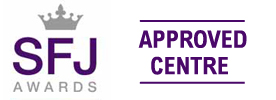Professional and Ethical Standards
Professional:conforming to the ethical or technical standards of a profession.
Whatever the professional investigator’s area of specialism, there are certain standards that apply. Adherence to a code of professional conduct is the benchmark of any professional, yet investigators have hitherto failed to fully identify their own Code.
The Institute of Professional Investigators, an organisation that represents investigators from both private and public practice, feels that an investigator’s own Code of Ethics and Standards should be a reflection of those created for the legal sector, taking into account the service that investigators provide.
Professional Investigation, which involves compliance with all legal and ethical principles applicable to the criminal and civil justice systems, does in fact lend itself to the creation of a Code of Ethics, Best Practice or Professional Standards Model.
For example, the Institute of Professional Investigators’ Code of Ethics reads:
I promise:
1. To conduct myself with Honesty and Integrity, and to uphold the highest Moral Principles, and to avoid conduct detrimental to my profession.
2. To conduct all investigations within the bounds of Legality, Morality and Professional Ethics.
3. To guard my own Professional reputation and that of my Professional Associates.
4. To uphold the Objects of the Institute and abide by the Memorandum and Articles of Association of the Institute of Professional Investigators.
Of course, the last paragraph of that Code reflects compliance with the individual organisation, but the compliance with the general meaning of the whole document requires that the investigator conduct him- or herself with the highest standards in mind, and adherence to the advice given in the first part of this module ensures compliance with the Code, without question. In this Code, rather than go into intricate detail, the IPI has elected to set a foundation upon which a professional can build a Code pertinent to their own situation.
Professional:conforming to the ethical or technical standards of a profession
Another Code of Ethics, from a book written in 1984 by John D. McCann, demonstrates how the Professional Code of Ethics can identify the desirable characteristics of any professional, and relate them to the profession of investigation. This Code goes into slightly more detail.
McCann’s Code reads:
1. As a (private) investigator, I regard myself as a member of a vital and honourable profession.
2. As a (private) investigator, I will strive to keep myself available to at least listen to the problems of any individual who may seek my counsel. I will, at all times, attempt to either serve a client to the best of my abilities or I will refer the client to someone known to me to be more capable than myself.
3. As a (private) investigator, I shall attempt to keep myself knowledgeable of all the laws pertaining to my profession and to all other phases of public and private law enforcement agencies, and to abide by those laws explicitly at all times.
4. As a (private) investigator, I will maintain constant mindfulness that when I am on a case I am essentially a direct representative, an external and specialist agent of my client. My conduct will always be honourable and professional so as not to reflect in a negative way upon that client.
5. As a (private) investigator, my reports of progress will always be made to my client at the time and place and with the content and regularity that has previously been agreed upon.
6. As a (private) investigator, I shall attempt, at all times, to establish and maintain proper dialogue between myself and my client.
7. As a (private) investigator, I will always respect the wishes of my client, except in serious criminal findings, the nature of which I am legally bound to disclose to the appropriate law enforcement agency.
8. As a (private) investigator, I will diligently pursue each and every assignment that I accept with interest and enthusiasm until a final and acceptable conclusion can be drawn to the mutual satisfaction of my client and myself.
9. As a (private) investigator, I know that no one is more professionally important to me than my client. I will serve my client with honesty, integrity, loyalty and dispatch with legally proper and thoroughly dedicated, proficient and professional demeanour.
The word private has been placed in parentheses because although this Code was written with private investigators in mind, there is no paragraph within it that cannot be considered by an employed or public investigator to be equally applicable to his or her own situation.
From a Code of Ethics, of whatever content and level of detail, a set of Standing Operating Procedures (SOPs) can be developed. When such SOPs are being considered, the writer should be expected to consider the Code and develop an SOP that complies with it. For example, when considering standard letters for dissemination to clients of a large investigation company, reference to a Code that requires regular and personal contact would preclude the compilation of an abrupt and impersonal template letter, and would require the investigator to write a more personally directed communication to the client.
SIA Standards of Behaviour for Private investigators and Precognition Agents
SIA research showed that the following standards of behaviour should be demonstrated by those operating within the private investigator sector.
Private Investigators should accept responsibility for their actions and diligently carry out their roles in ways which ensure that they:
- Confirm clients' identities and establish that they have legal and moral right to commission an investigation.
- Agree in advance with clients the objectives of the investigation and the fees, terms and conditions which will apply.
- Deal with clients and others with discretion and courtesy and in ways which do not bring the reputation of either themselves in particular or the profession of private investigation in general, into disrepute.
- Respect and protect clients' and others' privacy and lawful confidentiality.
- Objectively disclose to clients all the information arising from an investigation, whether it is advantageous or disadvantageous, unless the law dictates otherwise.
- Ensure that investigation specific and business records, administrative systems and procedures comply with legal requirements, protect against accidental disclosure and reflect best practice.
- Carry out investigations in ways which are moral, honest, truthful and fair whilst adhering to legal and regulatory requirements.
- Accept only those commissions which they consider themselves qualified to carry out.
- Seek advice from and/or refer clients to, only those who have the experience, knowledge and skills needed to carry out the work, meet the necessary legal requirements and operate to the same/similar code of ethics.
- Assist, when required by law to do so, the legal and regulatory authorities.
- Act fairly and not discriminate on the grounds of gender, sexual orientation, marital status, race, nationality, ethnicity, religion or beliefs, disability, or any other difference in individuals which is not relevant to the Private Investigators responsibility.
- Promote, through their general demeanour and in dealings with clients, the general public, colleagues and the authorities, the professionalism and integrity of the private investigation community.
Private Investigators should notify (register) the Information Commissioners Office to ensure that they have an entry on the Commissioners public register that they are processing personal data. This entry should include details of their use of personal data.
For more information visit:
https://ico.org.uk/about-the-ico/what-we-do
Page: 3
Module: 1




